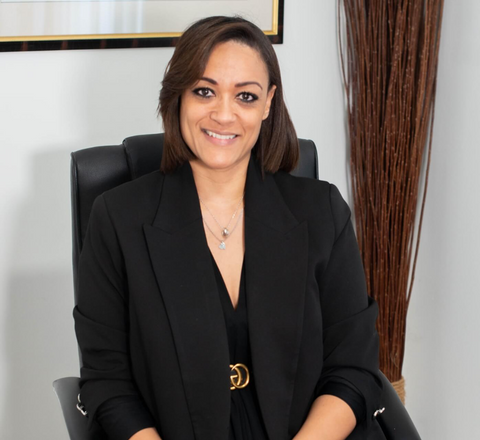Millions of women in the UK are dealing with hair and scalp problems, with a wide range of issues. Sounds familiar? If so, then you may have heard about trichologists. But most of us, even if we’re vaguely aware of the term, won’t really know what a trichologist is or what these professionals do. In this article we’ll give you the full trichology lowdown. So, you’ll know what they do, what conditions they can treat and the steps you can take yourself before you book a consultation.
So.. What Is a Trichologist?
A trichologist is a professional who specialises in trichology. This is the study of diseases and disorders of the hair and the scalp. They not only work to understand how these problems arise, but also on treating them. They’re not medical doctors, but they are experts in diagnosing hair and scalp disorders. And while they’re unable to prescribe prescription medications or perform surgical procedures, they can make referrals to medical specialists where required.
How Long Does It Take to Train as a Trichologist?
The gold standard of training in the UK is provided by the prestigious Institute of Trichologists. This is the leading association for this profession in the world. Their course takes two and half years to complete to prepare students for entry into clinical practice.
What Conditions Do They Treat?
They cover a wide variety of conditions. Hair loss, hair breakage, thinning, excessive hair growth, alopecia and even trichotillomania (hair pulling). They can also help with many scalp problems, for example folliculitis, psoriasis, seborrheic eczema, excessive dandruff and oily scalp.
To get an insight to into the female hair loss issues currently being seen by trichologists, we spoke with Samantha Stewart MIT, a qualified Consultant Trichologist at The Spencer Clinic in London.

She told us:
“One of the main types of hair loss we see in clinic is Telogen Effluvium. This type of hair loss can be an acute form which can be caused by stress, illness, crash dieting or medication. We also see a lot of chronic TE which can be caused by low ferritin, an under-active or over-active thyroid, diabetes, long term illness, long term medication or extreme stress. Since Covid we have seen an increased number of patients suffering from telogen effluvium and alopecia areata too.”
What Takes Place at a Consultation?
During a consultation, you won’t be surprised to learn that the trichologist will undertake a detailed examination of your hair and scalp. This will help to diagnose what the issues are. However, it’s important to note that trichologists take a holistic approach to diagnosis and treatment. So, in addition to the physical examination, they’ll ask you questions about your medical history. They'll also look at medications you take, hair products you use and look at your diet and lifestyle. And of course, your hair care routine!
They’ll then make a diagnosis and suggest any further tests that will help identify issues. And they'll recommend treatments and regimes to follow at home. If they believe that your issue is being caused by or relates to a medical condition, they may refer you to a medical health professional such as a GP.
What Steps Can I Take Before Seeing a Trichologist?

If you do decide to see a trichologist, then make sure you see only a fully qualified and experienced professional like Samantha. But before you do, make sure you’ve researched your condition to try to understand what’s causing your hair health issue. Then - look to take action yourself.
Cut Out Bad Hair Health Habits
Eliminating bad hair habits is always advisable. Stop using harsh products like chemical dyes and cut right back on those heat styling tools. Making changes to your diet and lifestyle can also boost your hair health – as well as your general health. Stress can wreak havoc on your hair, so make sure you’re getting adequate sleep. Take time to unwind and relax. Kicking back for 10 minutes twice a week with our Hair Gain Hair Mask will promote stronger hair, hydrate and nourish your scalp and help you to destress! Sometimes it can be difficult to find the time in our hectic lives to fit hair care in. Hair Gain's new Peptide Puff™ non aerosol dry shampoo is perfect for busy lifestyles while not compromising your hair's health!
Hair Supplements
Using great hair supplements is a must. If you’re experiencing hair loss or thinning, then join the thousands of women making Hair Gain Capsules and Gummies part of their hair health regimen. Scientifically formulated with the exclusive Anagain™ ingredient, they can help stimulate thicker and fuller hair at the root. They also contain an amazing blend of minerals, vitamins and aminos to boost hair growth from the inside.
Final Thoughts
At Hair Gain we're proud of the help we're giving to women grappling with hair fall with our amazing products. And top trichologists recommend them too!
Samantha Stewart at The Spencer Clinic says:
“We used to always recommend the necessary vitamins to our patients but that all changed when I trialled Hair Gain. We found that it completely complemented our clinical therapy. Our patients absolutely love all the benefits they get from Hair Gain.”
Read More
What Vitamins Are Good For Hair?
